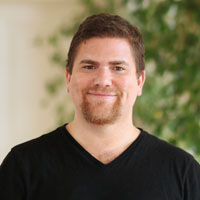 It's Election Day in the Unites States and since I voted, I've earned the right to complain for the next four more years. Growing up in East Texas, I used to hear the old folks say that a lot. Here's the thing, anyone can complain. It's easy to do. It's much harder to take action, to push through challenges and disappointment, and to work for change to improve a situation and the circumstances of your community. So, if you don't vote, march, stand up, or stay informed then you haven't earned to right to complain. In fact, you may well be making the situation worse. Each Election Day, I think about this and I think the men and women who fought for the rights of women and people of color to vote. Many of these warriors did not live to see the change for which they fought. When I think about their efforts, I think about others who have made huge strides against all odds to accomplish something truly great and beneficial for their communities. As a theatre artist of color living in D.C., I think about the pioneering and courageous efforts of Zelda Fichandler, Tom Fichandler and Edward Mangum, who founded Arena Stage in the 1950s and made it the first D.C. area theatre to allow an integrated audience. I think about the revolutionary work of Molly Smith, David Dower, Polly Carl, Jamie Gahlon and Vijay Matthews who gave us the American Voices New Play Institute, which launched #NewPlay TV, the blog Howlround, and the New Play Map, now housed at ArtsEmerson in Boston, Massachusetts. Of course, I still hope to one day be a part of the Resident Playwrights, what an extraordinary gift and opportunity that allows playwright time and financial support to write and develop plays. Needless to say, Arena Stage holds a special place in heart, because they want to make a difference in the American Theatre and working to empower local theatre artists and organizations. They understand that change doesn't happen overnight and that they need strong leadership to carryout their vision. I was overjoyed when I learned that David Snider was named the Director of Artistic Programming! Having worked with him at Young Playwright's Theater, I knew the bold, powerful and sincere impact that his vision and efforts would make at Arena Stage and on the D.C. Theatre Community.  DAVID SNIDER is an award-winning arts administrator and artist, with over 20 years of experience as a director, educator, producer, administrator and actor. He is currently the Director of Artistic Programming for Arena Stage at the Mead Center for American Theater. Prior to Arena Stage, he received the Meyer Foundation’s $100,000 Exponent Award for visionary leadership of a nonprofit, the National Arts and Humanities Youth Program Award from the President’s Committee on the Arts and the Humanities, and the Hands On Greater DC Cares’ Essence of Leadership Award, as “a nonprofit executive who has integrated innovative and strategic leadership to make a lasting impact on their organization and the community at large.” Mr. Snider received his MFA from New York University, Tisch School of the Arts. He is a Directing Fellow of the Drama League of New York, a past President of the League of Washington Theatres and a member of the National Arts Strategies’ Chief Executive Program, a collaborative think tank of 100 CEO’s from around the world dedicated to tackling issues of competition, finance and relevance on a global scale. True to form, David is spearheading two exciting initiatives: The Cradle Series and Playwrights' Arena. Recently, he took time out of his schedule to discuss how his passion for theatre, his belief in arts education, his vision for Arena Stage and much more, including how Zelda Fichandler inspired him to be the artist and leader he is today. I have it here for you now, please enjoy:
Jacqueline Lawton: Why did you decide to get into theatre? Was there someone or a particular show that inspired you? David Snider: My father is a United Methodist minister and would often draw from our family life for his sermons when I was a kid. At the same time I was an altar boy, sang in the choirs and even did short plays on stage in the church. So I grew up in some ways in the theater, with a sense of being onstage and having my personal (often embarrassing) childhood stories become story narratives for an audience. Then when I was sixteen we moved once again (Methodist ministers are typically moved every 5-6 years), I decided to stop going to church and fell into a student theater group as a replacement in some ways. We had a fantastic drama teacher and it was my first experience of theater as a company and as a community. Since then I’ve gravitated towards theater that builds and inspires community and a sense of company in some way. JL: From 2005-2012, you served as Producing Artistic Director and CEO of Young Playwrights’ Theatre (YPT). During your tenure, you led the organization through tremendous financial growth, raised the company's local and national profile and implemented extraordinary programming. What is the most valuable lesson you learned while working at YPT? Also, what skills and traits do you feel a successful artistic director should have to support the health and growth of an organization? DS: I learned so much during my time at YPT. I was so extraordinarily lucky to lead that organization and to inherit it from an amazingly supportive founder, Karen Zacarias. One very valuable lesson I learned there was that your company culture should reflect and support your mission and vision. If you’re trying to inspire and support students to clearly and creatively express themselves, you need to inspire and support your team in the same way. Also, in order to accomplish a mission, a staff needs to be involved in its articulation. Even if they inherit one that already exists, they need to have the chance to articulate for themselves in their own words, to own why they’re there, working so hard and probably sacrificing other opportunities (and more money elsewhere) to do it. They need to be inspired as a team, rather than just as a set of employees following others’ decisions. I think an artistic director of course needs a strong vision for the work of the organization. What’s its purpose in the world? Why should we care? At the same time I think really good artistic directors have a strong sense of how the artistic and financial concerns of a theater interconnect –and how the financial and artistic strength of the organization feed and rely on each other. JL: Prior to joining YPT, you ran the award-winning Text Alive! and Camp Shakespeare at the Shakespeare Theatre. With it being such a constant struggle to obtain, sustain, and grow financial support for the arts, why must artists and educators continue to advocate for arts integration? What role or impact do the arts, particularly theatre, have on childhood development? DS: I think we need to think about what kind of world we want to live in – and how students will compete in our global community if they can’t express themselves clearly and creatively. We know we’ve entered an age in which we all need to be creative, to think outside the box and drive the world with new ideas. The arts of course spark and inspire our creativity and without them I think we’d have a tough time making our way in today’s world. Look at Steve Jobs – a combination of creative genius, a love for design and a certain business savvy created a model that has changed the way we live. JL: Additionally, you were president of the League of Washington Theatres from 2007-2010, which must have given you great insight on the DC theatre community. So, tell us about this community your thoughts on:
JL: Since August of 2012, you have served as Director of Artistic Programming at Arena Stage. It must be very exciting and quite a whirlwind! Tell us:
JL: Tell us about the American Voices New Play Institute. What is your vision for its future programming? What impact do you hope it will make on the American Theatre? DS: We want the AVNPI to continue to support playwrights who are at a certain tipping point in their work, who with a bit more support can bring forth work they otherwise might not be able to achieve. We know the work of the AVNPI is reverberating throughout the American Theatre already, resulting in new plays across the country from our resident playwrights. We believe the results of these residencies will continue to unfold over the next several years, as the work being gestated right now is written and produced across the country. We also see the model being replicated, as more theaters begin to build residency programs that support playwrights over the long term with less demand for results. It’s important for the playwrights to decide what they need to do with the time. JL: Tell us about Arena Stage’s Cradle Series. What is your vision for its future programming? How will it serve DC theatre community? DS: We want the Kogod Cradle Series to support creative risk-taking, of companies, playwrights, directors, designers and actors. That’ll take many forms in the coming years and will allow us to support more local artists, as well as artists from around the country. We hope it’ll be another way of supporting and nurturing our extraordinary local talent pool as well. JL: From November 8th - 11th, Arena Stage Cradle Series will feature the work of Banished? Productions, dog and pony dc, and African Continuum Theatre Company. What drew you to these companies? What excites most about the days ahead? DS: They all had work they were ready to actively explore in this series, with specific questions they wanted to ask about their own work, like: How does this game work with an audience? How can we adapt an installation piece to tour in a different space? These are important artistic and organizational questions and I was excited to help them ask them. I’m excited to see how it all plays out – it’s an experiment and I’m sure we’ll all learn a lot. I hope a lot of people come, because it’s a real opportunity to participate in the growth of two exciting pieces. JL: You’ve had quite an exciting and diverse career as an actor, director, educator, producer, and administrator. What advice do you have for an up and coming theatre artists and practitioners? DS: When I was training with Zelda Fichandler back at NYU, we were encouraged to think of ourselves as having a mission as an artist. And because my parents, one a minister and the other an educator, exemplified leading lives of purpose and service, I’ve always thought of my career as serving a greater purpose beyond myself. So my advice would be: Figure out what your mission is and pursue it. Take risks, try new things and generate your own work. Create your own opportunities. Think strategically about your career and where you want to be long-term - and then take the steps to make it happen. Be ready when the door opens and step through it.
0 Comments
Your comment will be posted after it is approved.
Leave a Reply. |
My BlogI'm a playwright, dramaturg, and teaching artist. It is here where you'll find my queries and musings on life, theater and the world. My posts advocate for diversity, inclusion, and equity in the American Theatre and updates on my own work. Please enjoy!
Categories
All
Archives
June 2020
Reading List
|
